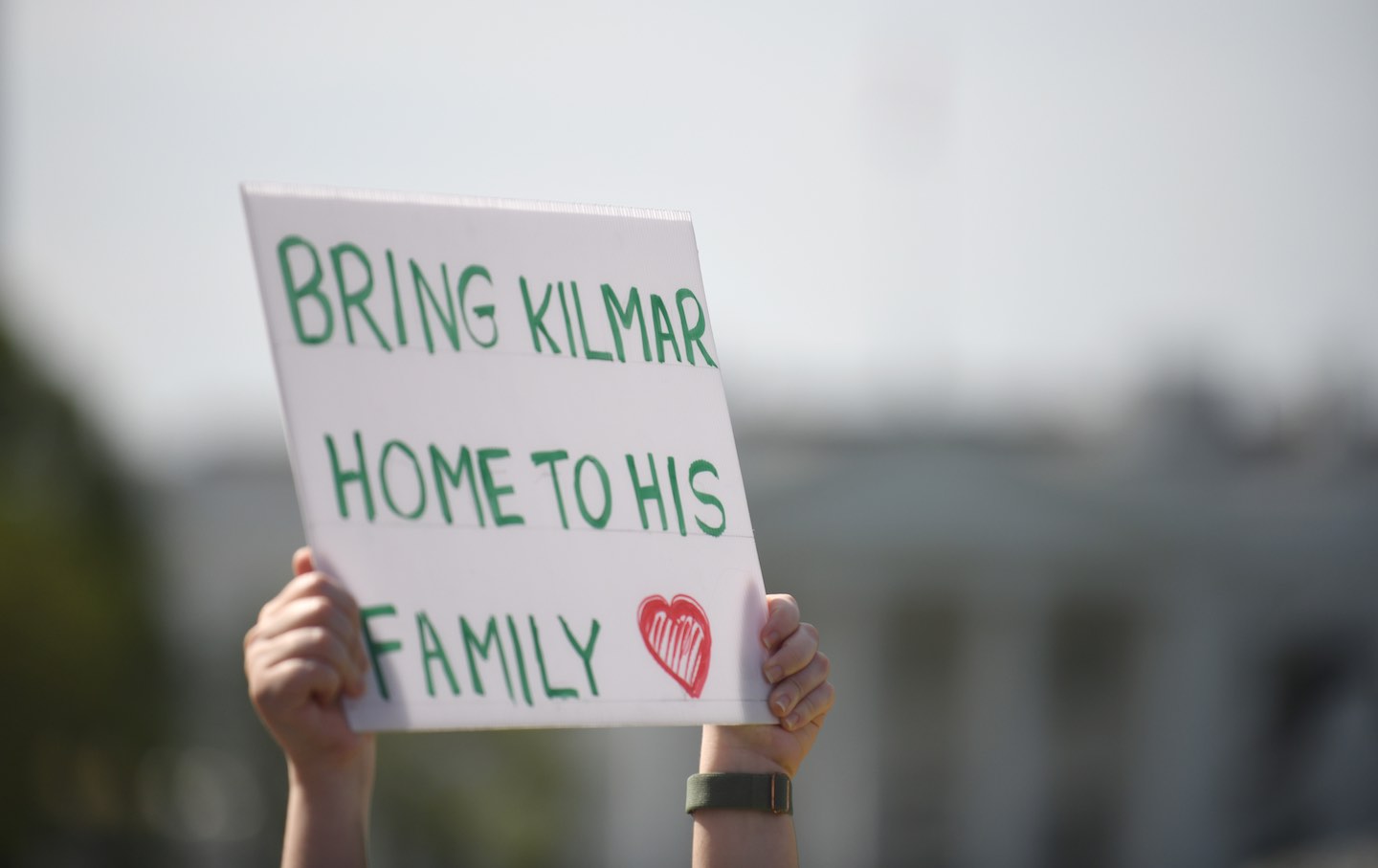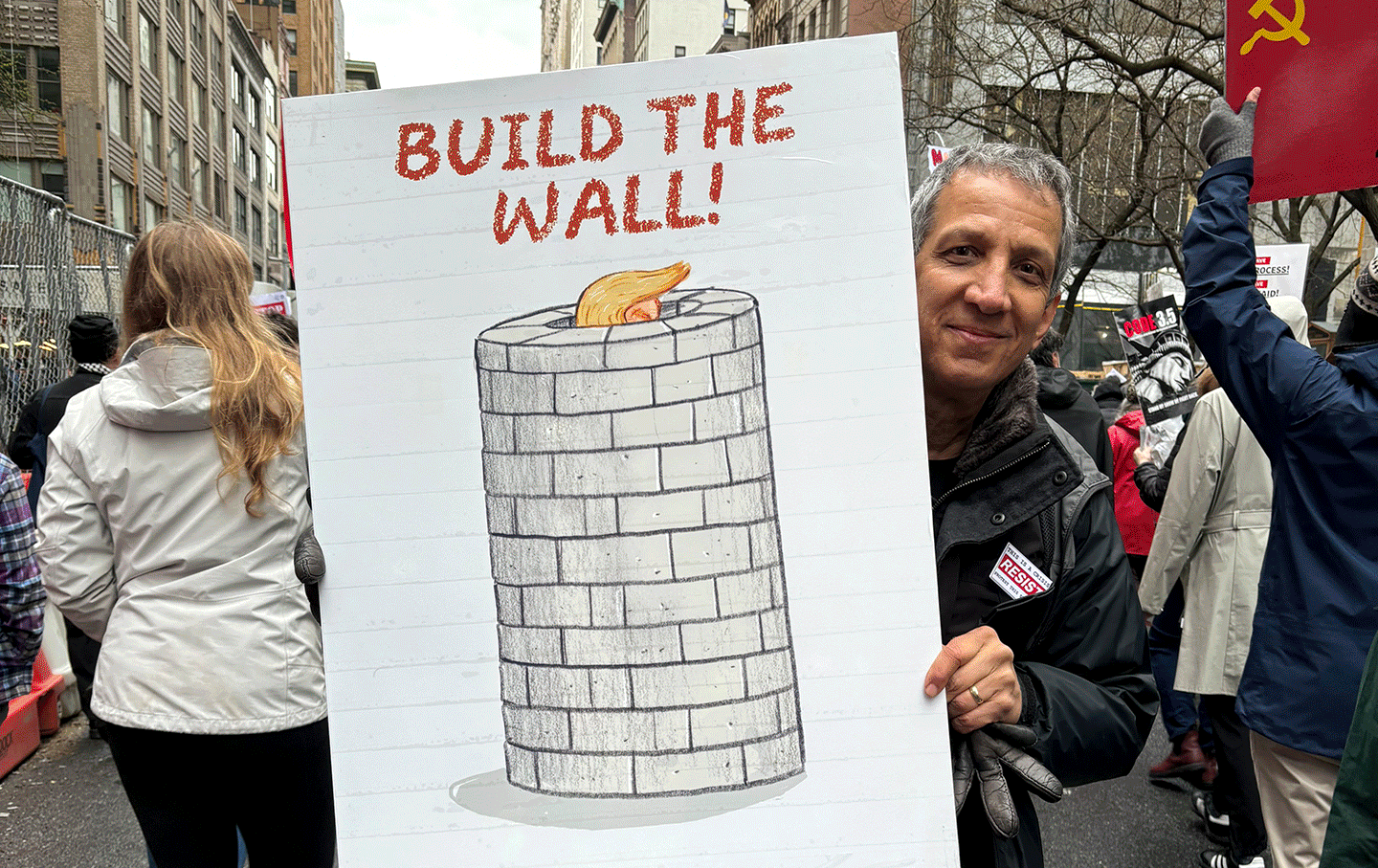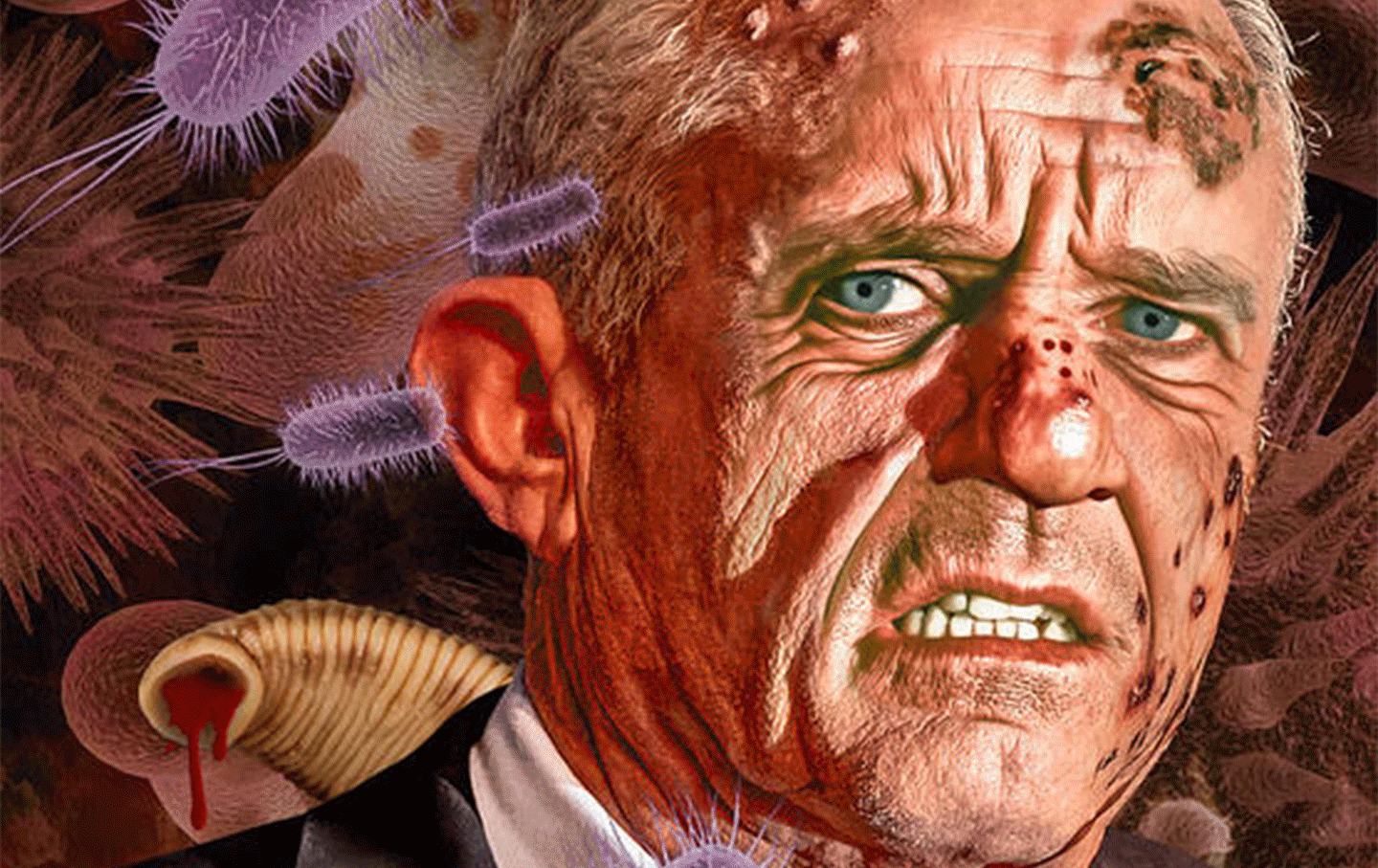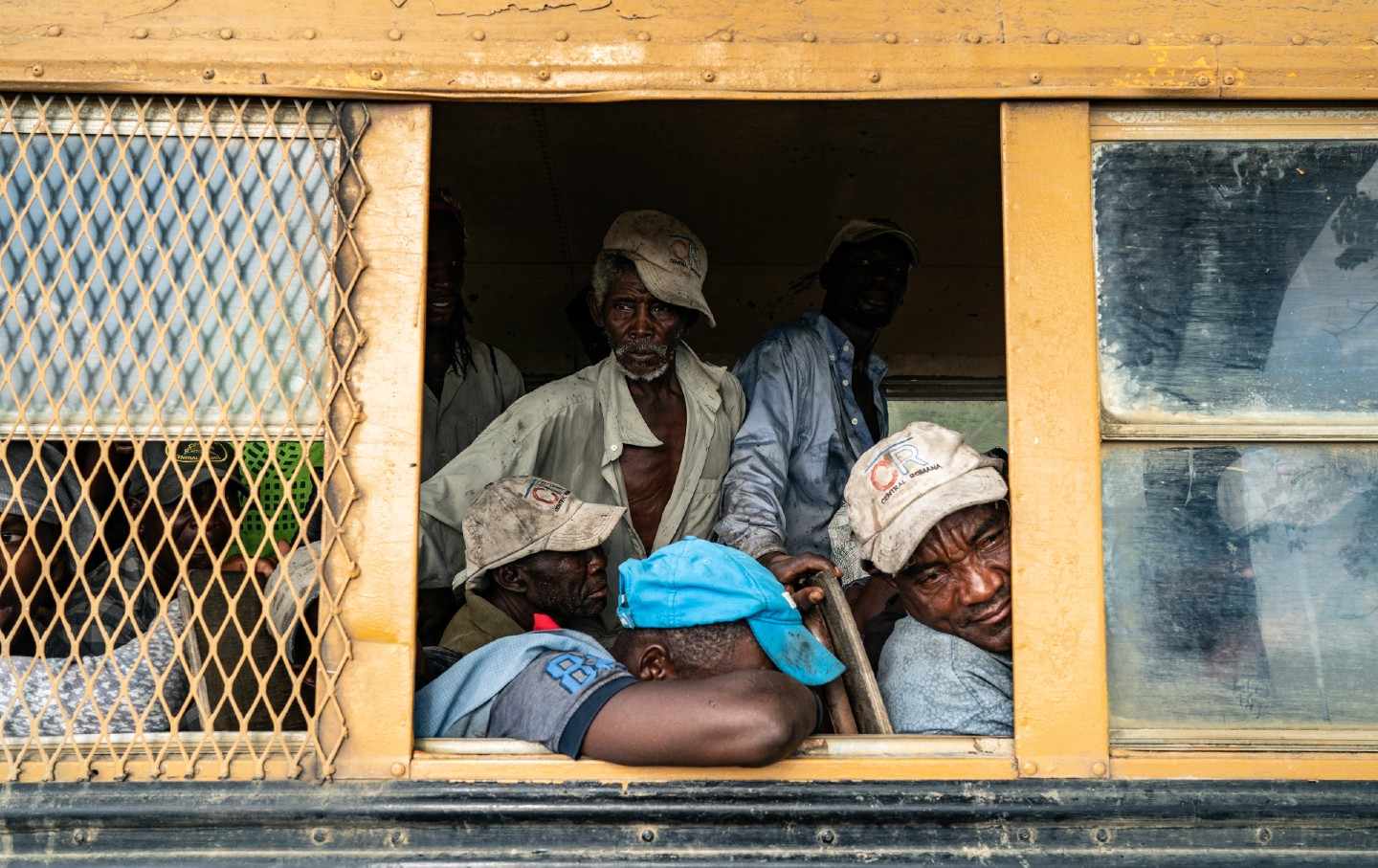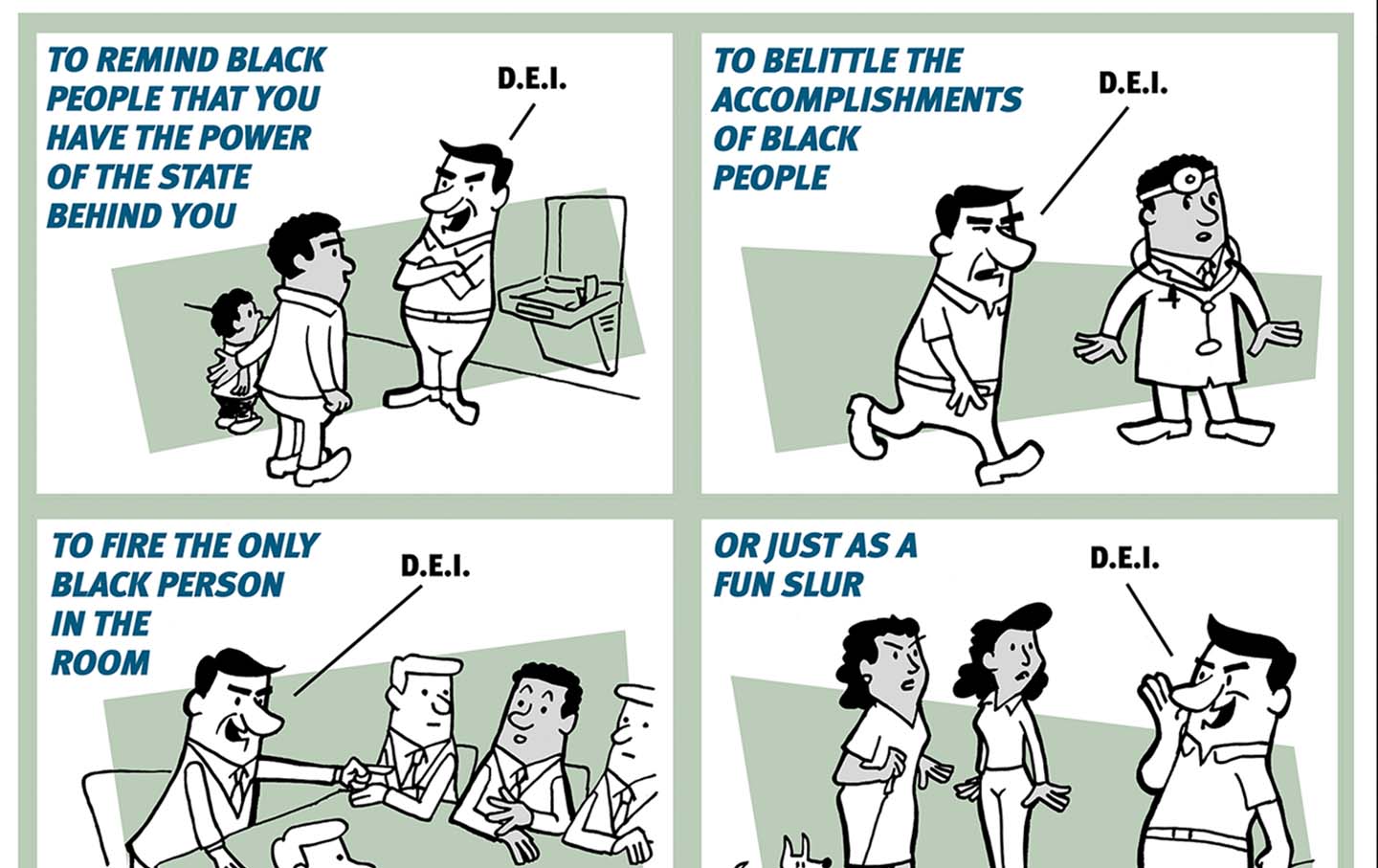My Long, Strange Trip to Madison Square Garden to Meet the Trumpies
Trump supporters told me repeatedly that Trump loves them. How can so many people believe this?
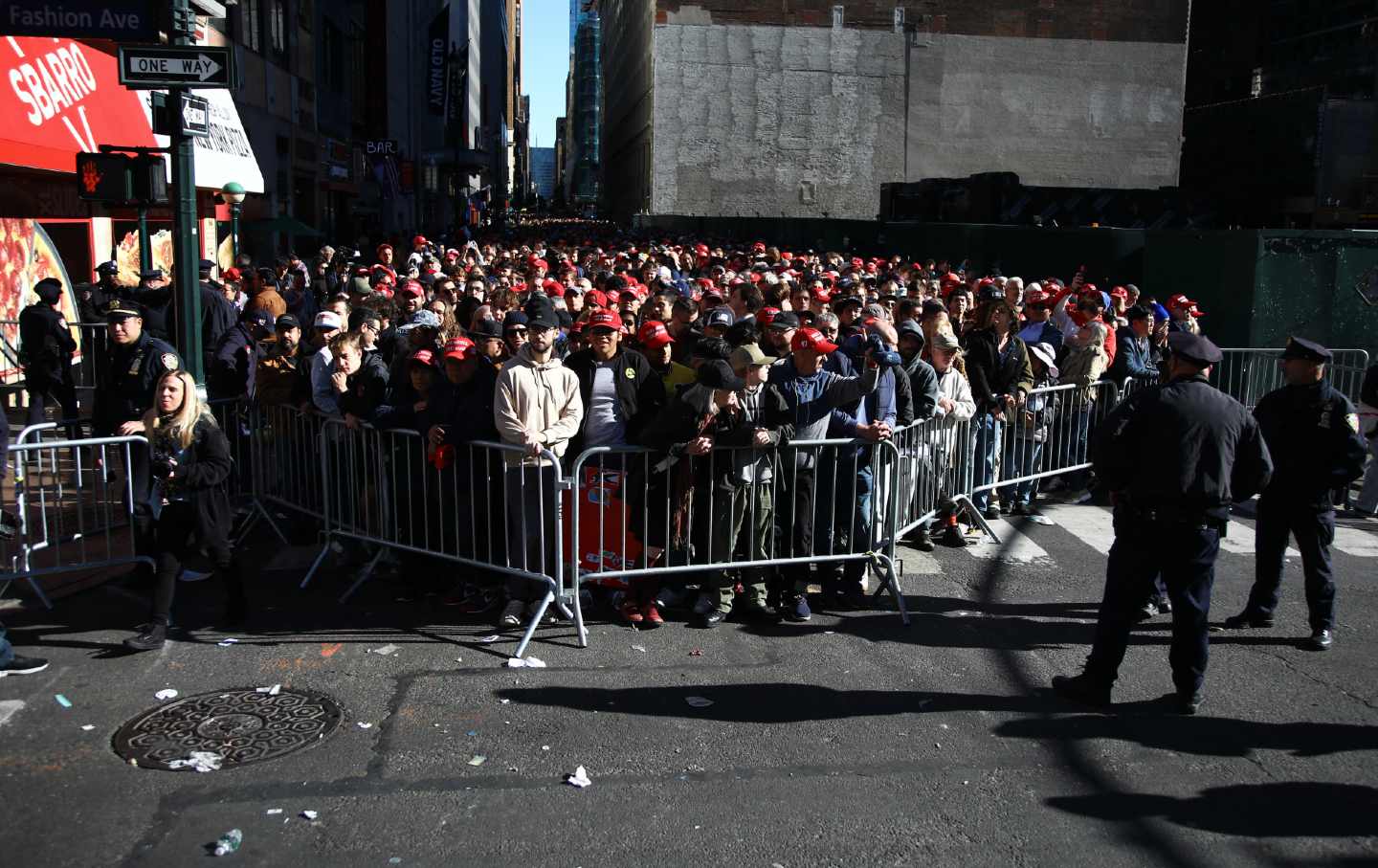
Supporters of former US president and Republican presidential candidate Donald Trump arrive for a campaign rally at Madison Square Garden in New York on October 27, 2024.
(Leonardo Munoz / AFP via Getty Images)
The Trump rally in Madison Square Garden on Sunday was my last chance to see the man in action before the election. So even though the organizers had rejected my request for a media pass (what, The Nation?), my husband and I decided to go anyway. Unfortunately, when we got to the Penn Station subway station, the place was packed, and the police, of whom there were many, had blocked off every exit but one. It took us ages to get out of there. Once outside, we had no idea where to go. For a while we stood in a long line that turned out to be reserved for VIPs. “How did you get to be a VIP?” I asked several people, who seemed to have no idea. “My friend arranged it,” said one woman with a shrug. We walked to 34th and 6th and joined the regular-people line. It was even longer. So much for the attempt by some mischievous Dems to sabotage the event by signing up and not going.
The first thing I noticed was how many Black and brown people were there—lots of Hispanics, more than a sprinkling of Black people and Asians. Of course there were plenty of white people, including elegant Eastern European women and their beefy husbands, young Orthodox Jewish men (where were the women?), and loud young men who burst out regularly with shouts of “USA! USA!” But the picture you may have of Trump rallies as all-white fiestas did not hold true.
The first person I talked with was a Black woman holding an enormous American flag over which she’d draped a white embroidered tallit, a Jewish prayer shawl. Her three most important issues were immigration, compulsory vaccination, and “boys in the girls’ bathroom.” She claimed that her 11-year-old daughter had been told in school how to wear rolled-up socks next to her vagina to simulate male genitalia. She was fervently anti-abortion, even though her then-boyfriend had urged her to end her pregnancy. She also told me she had dreams in which God told her what was going to happen. For example, two weeks before Trump was shot at in Butler, Pennsylvania, God told her there would be an attempt on his life.
The next was a Colombian American woman who said she was 82 and had been in the United States since she was 2. Her English was not great, especially considering that she would have grown up and gone to school here, but what she told me was clear: Under Trump, her transportation business was doing great—gas was cheap, taxes were low—but now, thanks in part to “that stupid Obamacare,” it was struggling. I asked her how she felt about Trump’s many insults to Latin American immigrants. Like everyone I interviewed, she just didn’t take in anything that contradicted her view: “Trump loves the Spanish people!”
Next up, a young Christian, anti-abortion Korean American woman in a stylish gray MAGA hat. She was just the nicest person in the world. We bonded immediately over being small women in a sea of taller people. She told me she worked from home doing something on the Internet for NYU but was reluctant to say more, possibly because she was developing her own online business, the nature of which she was also reluctant to disclose. Like many Trumpies I’ve met, she had gone way down the rabbit hole of alternative facts, which she found by following far-right commentators on the Internet. She believed that the FBI and Nancy Pelosi had orchestrated January 6. She believed that an old woman was now in prison for walking by the Capitol on that day. She believed that the jury had found Trump guilty of raping E. Jean Carroll because they were threatened with physical harm by, among nameless others, Manhattan District Attorney Alvin Bragg. What about the many sexist things Trump has said? “So many men talk like that,” she said, with a faint smile. Although her parents were immigrants, she supported Trump’s plan to deport millions of them: Her parents had waited years to come here legally, after all. When I pointed out that many of the undocumented were seeking asylum, she said, yes, but their appointments were five years in the future, so they just whff! ran away.
Standing nearby was an old white man from Cape May, New Jersey, who described himself as a builder. He told me that the flooding in North Carolina was the fault of Doug Emhoff, Kamala Harris’s husband. Two weeks before the floods, Emhoff had bought permits for lithium mines in the state, but people had refused to sell their houses so the mines could be built. Then came the floods, which destroyed the houses—now the property could be bought up for next to nothing. A bit too convenient, those floods, eh?
I asked his daughter, a yoga teacher and life coach, what she wanted Trump to do. “I just want it to be like 2020,” she replied. Meanwhile, a young white woman was shouting, “Trump! Trump! Trump!” while dancing with a sign that read, “Say No to the Hoe.”
More from the Trump campaign:
I wish I had had a chance to meet this energetic female misogynist, but at that point, we were informed that the Garden was full, and we started the long and confusing trek back to Sixth Avenue. I’d asked a very tall young man to take a photo of the crowd from as high up as he could lift my phone. It shows the street crammed with people all the way to MSG, two long blocks away. (When people say the Garden wasn’t full, don’t believe them.) This obliging young man turned out to be a recently hired reporter for The Daily Caller, a conservative outlet founded by Tucker Carlson. His main issue seemed to be a ban on gas stoves that Harris was supposedly pushing, a claim rated false by The Washington Post.
I came away bewildered from my afternoon with the Trumpies. We talk a lot about people who live in a blue bubble, and that is fair—a lot of us do. But these (mostly) friendly ordinary people live in a bubble too—of TikTok videos, far-right YouTubers, and websites like, um, The Daily Caller. They are deeply alienated from standard sources of information. For them, that something is reported in The New York Times or The Washington Post is all the more reason to find it suspicious. It’s a paranoid vision, in which the vice president’s husband controls the weather (well, he is Jewish) and the government is going to come into your apartment and take your stove. And yet they seemed perfectly normal—well, maybe not the woman who thought God talked to her in dreams. Some of my friends thought I would be risking violence by mixing with the crowd—but people did not seem put off when I said I was for Harris and was just there out of curiosity.
Of course, I don’t know what goes on in their minds. Do they really just tune out Trump’s many racist, misogynist statements, his lies, his dismissal of democratic norms? Or would a longer conversation reveal that they agreed with him that immigrants are rapists and criminals who come from shithole countries and eat their neighbors’ cats and dogs, that Democrats are the enemy within, and that Harris is not just a politician they disagree with but a lazy, low-IQ person who slept her way into government and has no idea what she’s doing?
Several people told me Trump loves them. Indeed, he says so all the time. The day after the rally, I got a text message from Trump: THIS TEXT IS NOT FOR EVERYONE. You’re getting it because I love you, Katha. Most politicians don’t talk like that. It’s a rare Dem who would say Harris actually loves them. Maybe there’s an emotional bond between Trump and his followers that supersedes the content of anything he says. Maybe the very things we mock him for—his long-winded rambling speeches, his awkwardness, his orange hair and makeup, his oddly distant relation with Melania—make him seem endearingly human. Maybe the only thing that matters to them is that he acknowledges and validates their nostalgia for that supposedly simpler time when the US was at the top and it looked like their lives were going to be OK. On the way out of the crowd, I ran into a youngish Black man selling MAGA hats and T-shirts. I asked him if he was for Trump or this was more of a business thing. “Oh, I’m for him,” he said with a big smile. “Trump loves people!” I asked him what people mean when they say Trump would make America great again. When was America great? “Whenever you were happy,” he said. “Trump wants it to be like that.”
Hold the powerful to account by supporting The Nation
The chaos and cruelty of the Trump administration reaches new lows each week.
Trump’s catastrophic “Liberation Day” has wreaked havoc on the world economy and set up yet another constitutional crisis at home. Plainclothes officers continue to abduct university students off the streets. So-called “enemy aliens” are flown abroad to a mega prison against the orders of the courts. And Signalgate promises to be the first of many incompetence scandals that expose the brutal violence at the core of the American empire.
At a time when elite universities, powerful law firms, and influential media outlets are capitulating to Trump’s intimidation, The Nation is more determined than ever before to hold the powerful to account.
In just the last month, we’ve published reporting on how Trump outsources his mass deportation agenda to other countries, exposed the administration’s appeal to obscure laws to carry out its repressive agenda, and amplified the voices of brave student activists targeted by universities.
We also continue to tell the stories of those who fight back against Trump and Musk, whether on the streets in growing protest movements, in town halls across the country, or in critical state elections—like Wisconsin’s recent state Supreme Court race—that provide a model for resisting Trumpism and prove that Musk can’t buy our democracy.
This is the journalism that matters in 2025. But we can’t do this without you. As a reader-supported publication, we rely on the support of generous donors. Please, help make our essential independent journalism possible with a donation today.
In solidarity,
The Editors
The Nation

